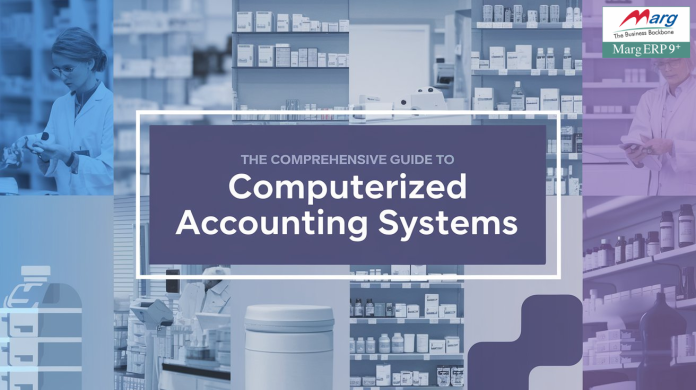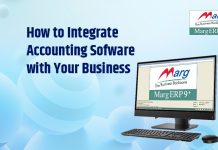In the rapidly evolving business landscape, accounting has become more than just number crunching; it’s now the backbone of decision-making and financial transparency. With the advent of technology, the computerized accounting system has transformed how businesses manage their finances. Let’s delve into its features, advantages, disadvantages, and overall importance to understand its significance in today’s world.
What Are the Features of a Computerized Accounting System?
A computerized accounting system refers to software that automates the process of recording, managing, and analyzing financial transactions. Unlike traditional manual accounting, it leverages advanced tools to ensure efficiency, accuracy, and timeliness in financial management.
The hallmark of a computerized accounting system lies in its robust features that cater to diverse business needs. Here are the key features:
- Automation: Eliminates manual data entry by automating repetitive tasks like invoicing, payroll, and bank reconciliation.
- Data Accuracy: Ensures precise calculations, minimizing human errors in financial records.
- Real-Time Reporting: Provides instant access to financial reports, aiding in timely decision-making.
- Multi-User Access: Supports multiple users working simultaneously, enhancing collaboration within the organization.
- Scalability: Adapts to the growing needs of a business, from startups to large enterprises.
- Integration: Seamlessly integrates with other systems, such as inventory, sales, and tax management.
- Security: Offers password protection and data encryption to safeguard sensitive financial information.
- Audit Trail: Maintains a detailed log of all transactions for audit and compliance purposes.
- Customization: Tailors reports and processes to align with specific business requirements.
- Compliance Management: Adheres to legal and regulatory standards, simplifying tax filing and reporting.
Importance of a Computerized Accounting System
In today’s dynamic business environment, the importance of computerized accounting cannot be overstated. Here’s why:
- Strategic Decision-Making: By providing real-time financial data and insights, these systems empower businesses to make well-informed decisions that drive growth.
- Operational Efficiency: Automation reduces the workload on employees, allowing them to focus on core business activities.
- Improved Financial Transparency: Clear and accurate records enhance the credibility of financial statements, fostering trust among stakeholders.
- Regulatory Compliance: With in-built tax and compliance features, businesses can avoid penalties and maintain a good standing with authorities.
- Scalability: The system grows alongside the business, supporting expansion without compromising performance.
Need for a Computerized Accounting System
The need for computerized accounting arises from the complexities of modern financial management. Businesses today deal with large volumes of transactions, regulatory requirements, and the demand for instant reporting. A manual system simply cannot keep up with these challenges. Here are some scenarios highlighting its necessity:
- High Volume of Transactions: Managing thousands of daily transactions is nearly impossible without automation.
- Regulatory Changes: Frequent changes in tax laws and regulations require an adaptable system that updates automatically.
- Global Operations: For businesses with international clients or branches, computerized accounting facilitates multi-currency transactions and consolidations.
- Data Analysis: Advanced reporting and analytics help businesses identify trends and optimize their operations.
- Competition: To stay ahead in the market, businesses must leverage technology for operational efficiency and cost savings.
Advantages and Disadvantages of Computerized Accounting
Adopting a computerized accounting system brings numerous benefits that can revolutionize financial management:
Advantages of Computerized Accounting
- Enhanced Accuracy Automated processes reduce errors significantly, ensuring the integrity of financial data. This is crucial for maintaining trust with stakeholders.
- Time Efficiency Tasks that traditionally took hours or days, like preparing financial statements, can now be completed in minutes. This allows businesses to focus on strategic activities.
- Cost-Effectiveness While the initial setup might involve expenses, the long-term savings in labor costs and error rectifications outweigh the investment.
- Real-Time Insights Instant access to financial data facilitates informed decision-making. Business owners can monitor cash flow, profitability, and expenses in real time.
- Scalability and Flexibility A computerized accounting system grows with your business, accommodating increased transactions, users, and reporting needs without requiring major upgrades.
- Improved Record Keeping With all data stored digitally, retrieving historical financial information becomes effortless. This supports transparency and accountability.
- Regulatory Compliance The system’s built-in compliance features ensure that businesses meet local tax and legal requirements without complications.
- Environmentally Friendly By reducing reliance on paper, computerized accounting contributes to eco-friendly business practices.
Disadvantages of Computerized Accounting
- Initial Setup Costs The installation, licensing, and training costs can be significant, especially for small businesses.
- Technical Dependence Relying on technology means that system failures, crashes, or bugs can disrupt operations.
- Learning Curve Employees might require training to adapt to the new system, which can temporarily affect productivity.
- Dependence on Power and Internet Power outages or lack of Internet connectivity can halt operations, particularly for cloud-based systems.
- Periodic Updates Regular updates are necessary to ensure compliance with regulations and to fix bugs, which can be time-consuming.
Conclusion
A computerized accounting system is no longer a luxury but a necessity in today’s business world. Its advanced features and ability to enhance accuracy and efficiency make it an indispensable tool for financial management. While there are challenges, the benefits far outweigh the drawbacks, especially when proper precautions are taken.
Businesses that invest in these systems improve their operational efficiency and gain a competitive edge in the market. By understanding the features of computerized accounting systems, their advantages, disadvantages, and importance, companies can make informed decisions to streamline their financial processes and achieve long-term success.
As the business environment continues to evolve, so too will the need for sophisticated tools like computerized accounting systems, ensuring that organizations remain agile, compliant, and efficient.
Frequently Asked Questions
What are the key features of a computerized accounting system?
A computerized accounting system offers features like automation, real-time reporting, data accuracy, multi-user access, integration with other business systems, scalability, and compliance management. These features make financial processes efficient and error-free.
Why is a computerized accounting system important for businesses?
It enhances operational efficiency, ensures financial transparency, facilitates strategic decision-making, supports regulatory compliance, and scales with business growth. These systems are essential in managing modern financial complexities.
What is the need for a computerized accounting system?
The need arises from handling high transaction volumes, adapting to frequent regulatory changes, supporting global operations, enabling data analysis, and maintaining a competitive edge in the market.
What are the advantages of computerized accounting?
The advantages include improved accuracy, time efficiency, cost-effectiveness, real-time insights, scalability, regulatory compliance, and environmentally friendly operations.
What are the disadvantages of computerized accounting?
The disadvantages include setup costs, technical dependence, a learning curve for employees, and reliance on power and internet connectivity.




















